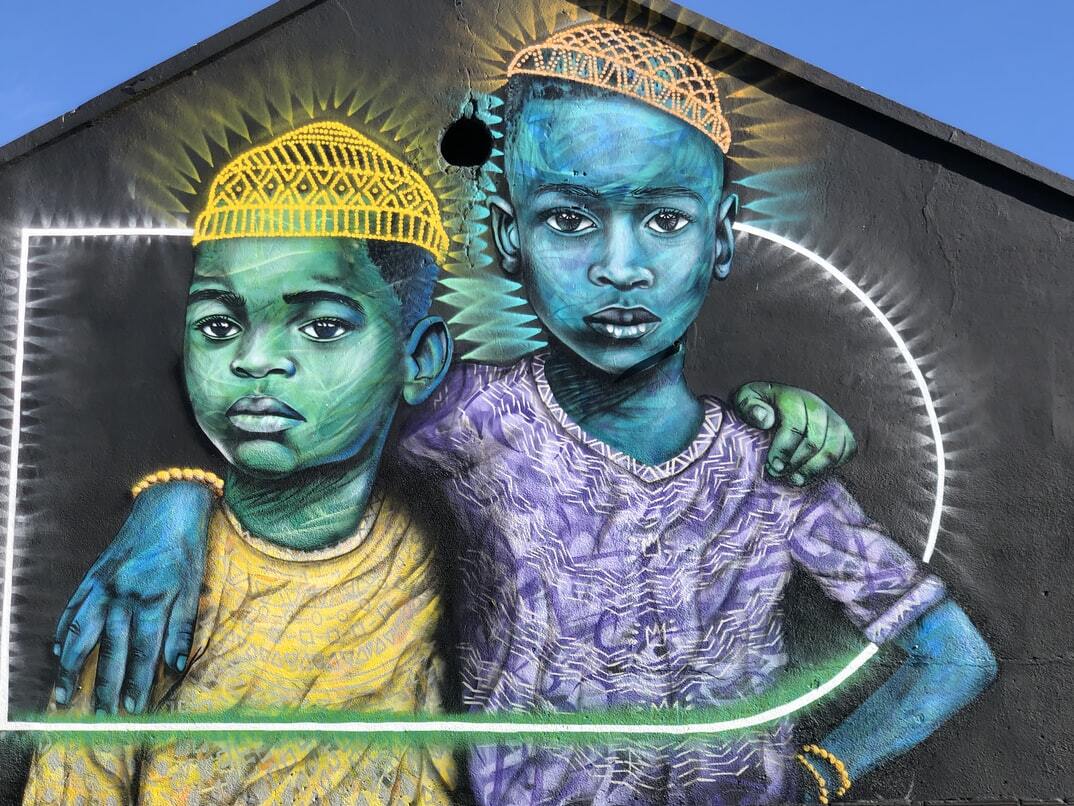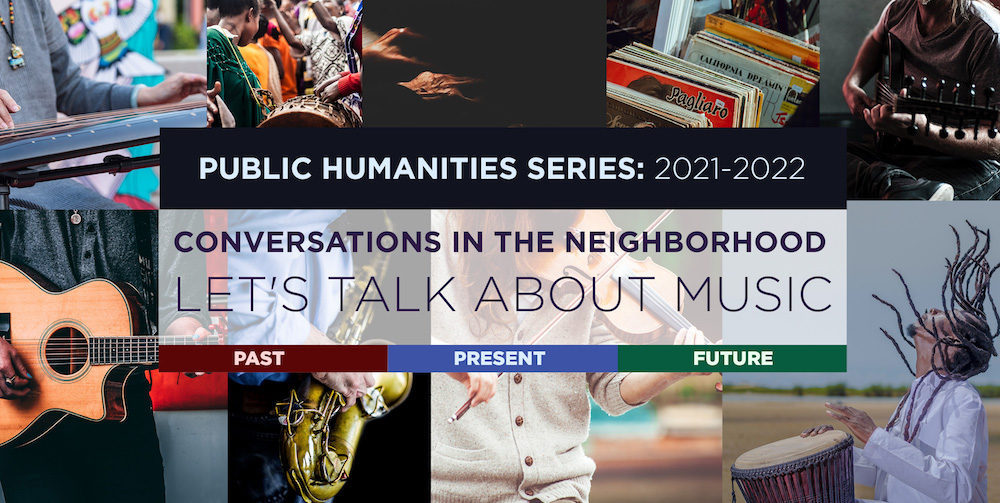For 2021-22, Conversations in the Neighborhood chooses music as an entry point into the humanities because it is an effective medium to address complex themes, including identity, migration, and culture. Additionally, music allows us to examine the context of songs. But more importantly, the series draws parallels between music genres and geographic locations.
Music is local. It comes in different languages and provides memories of specific settings. In Haiti, for example, farmers come together to harvest food. During this social practice, named Konbit, Haitian peasants bring drums and sing songs to ease the hard labor required by this type of work. In the United States, the Klamath Tribes, located in Southern Oregon and Northern California, make use of music to pass down intergenerational knowledge and to disclose their historical experiences. These examples reveal that one needs to be part of these groups – or have lived there – to comprehend these localized musical acts. Further, they demonstrate that music is a key component of people’s cultural heritage and practices.
Music is global. With access to streaming tools, people worldwide are consuming local, regional, national, and global music. As a result, music groups like BTS, a popular Korean boy band, are reaching international stardom because they have succeeded in gaining an international audience.
People use music to create spaces for conveying their feelings – grief, happiness, love, and anger and to tackle social issues and examine their blind spots. Conversations in the Neighborhood: Let’s Talk about Music invites its audiences to reflect on their musical experiences as a tapestry woven in visible and invisible histories. It will raise the following questions in dialogue with artists and humanities scholars: How do people make music? Where do artists find their inspiration? What roles do songs play in our lives? What do we expect of music?
Conversations in the Neighborhood will connect members of the community with each other through sharing discussions or reflections on music.
Some events will be held virtually and others in-person. All events are free and open to the public.
For questions, please contact Alexandra Cenatus at acenatus@ufl.edu

Asia: Transnational Music, Archives, and Popular Culture
Join us for a virtual conversation with scholars Miki Kaneda (Boston University), Tao Leigh Goffe (Cornell University), and Christine Yano (University of Hawaiʻi), moderated by Ivy Chen (UF Museum Studies).

Black Love: Creativity, Expressions, and its Gifts
Be there in-person at the A. Quinn Jones Museum (1013 NW 7th Avenue) on Saturday, February 19, from 5: 30 pm to 7: 30 pm to continue our celebration of Black History Month.

Love Songs within Africa and the African Diaspora
Join the UF Center for the Humanities and the Public Sphere, the A. Quinn Jones Museum, and the City of Gainesville on Saturday, February 19, to celebrate Black History Month for two events that spotlight links between Africa and the African Diaspora.
Past Events
- Sites of Transformations: Songs, Native Identity, and Healing
- Latinx Musical Spaces: Rap Seminar
- Verzuz: On Carework, Storytelling, and the Black Imaginary
- Food Memories of Asia
Sponsored by:

